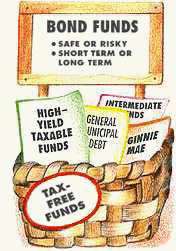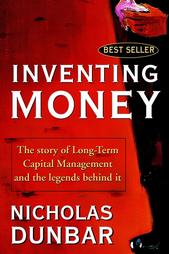skip to main |
skip to sidebar
 People often say: “Low risk, low return; high risk, high return.” Is it a truth? Let’s us examine it through an example of the investments made shown below.
People often say: “Low risk, low return; high risk, high return.” Is it a truth? Let’s us examine it through an example of the investments made shown below.
Fund CAT is the best performer in Malaysian Unit Trust (Mutual Fund) industry for the period of more than 5 years as per 23rd June 2006. In the stable of around 400 funds to choose from, whether it is equity fund, bond fund, mixed fund, money market fund and so forth, it is the fund that gives the best return to its unit holders.
Fund CAT performance from 25th June 2001 to 23rd June 2006 is 113.04% which translated into 16.33% Compounded Annual Growth Rate (CAGR). One should notice that 2001/02 was the most bargain market since 1999. When count from an inception date of Fund CAT, which is in 1999, the fund performance is 90.5%, which translated into 9.67% CAGR.
How about placing all investment in a single stock? Is it really a high risk investment? Take an example of RLQ. RLQ is a resource-based company and its core activities are in 3 categories, namely Marine Products Manufacturing (MPM), Crude Palm Oil Milling (CPOM) and Integrated Livestock Farming.  In the same period, RLQ generates a return of 119.27%, which is 17% CAGR. Bear in mind that RLQ is not the best performer of the market. Furthermore, since RLQ main businesses are in resource-based industry, any negative happenings would have impact to its performance. In the period mentioned, RLQ experienced few incidences such as high price of raw materials such as soy bean meal and corn meal, 2 bird flu threats and tsunami which have a huge negative impact to its underlying businesses. Nevertheless, it gives a better performance compared to Fund CAT which adapts a diversification policy.
In the same period, RLQ generates a return of 119.27%, which is 17% CAGR. Bear in mind that RLQ is not the best performer of the market. Furthermore, since RLQ main businesses are in resource-based industry, any negative happenings would have impact to its performance. In the period mentioned, RLQ experienced few incidences such as high price of raw materials such as soy bean meal and corn meal, 2 bird flu threats and tsunami which have a huge negative impact to its underlying businesses. Nevertheless, it gives a better performance compared to Fund CAT which adapts a diversification policy.
While at a glance, Fund CAT is a more low risk investment made since its investments are well diversified into various sectors, money market and cash. At the same time, investment made on RLQ seems pose a high risk to its investors since RLQ businesses are in resource based industry, meaning that any negative happenings in the industry would cause negative impact to RLQ bottom line and ultimately to its investors. Nevertheless, anyone who chooses either Fund CAT or RLQ as his investment would reap similar return to his nest egg. One should always remember that investment made through rear mirror would not guarantee his investment success. When an investment result is most of the time relied on capability of the investment manager, it is worthwhile to aware any changes in fund’s investment team members. They are the one who decide the investment result of yours.
Note: As we are investors with long term perspective, any investment with less than 5 years is meaningless. Thus, we only use investments with minimum 5 years period for comparison. Remember, investment is a marathon, not a 100 meter race.
Excerpts from: http://www.theedgedaily.com/
 “The Malaysian equity funds have posted "respectable returns" over the mid- to long-term periods, the Federation of Malaysian Unit Trust Managers (FMUTM). It said based on Standard & Poor's report on the fund performance as at July 28, 2006, the average returns for Malaysian equity funds for the seven-year period was 24%, five-year period 56% and three-year period 26%.”
“The Malaysian equity funds have posted "respectable returns" over the mid- to long-term periods, the Federation of Malaysian Unit Trust Managers (FMUTM). It said based on Standard & Poor's report on the fund performance as at July 28, 2006, the average returns for Malaysian equity funds for the seven-year period was 24%, five-year period 56% and three-year period 26%.”
Period (year) 3 5 7
UT Return (%) 26 56 24
UT CAGR (%) 8.01 9.30 3.12
FD Return with 4% CAGR (%) 12.49 21.67 31.59
As we can notice from the table above, by placing your money in unit trust (mutual fund) investment for 3 years, the return for the period would be 26% and when it translates to Compounded Annual Growth Rate (CAGR) which is 8.01. Similarly, for the period of 5 and 7 years, the return is 56% and 24% respectively and for CAGR for both, the former is 9.30% and the later is 3.12%. What will you get if you place your investment in “risk-free” Certificate of Deposit (CD) or known as Fixed Deposit (FD) in English Commonwealth countries? With 4% return annually, the figure will shock us!! For the period of 7 years, this “risk-free” investment performs better than unit trust (mutual fund) investment with more than 7%. When handling your hard-earned monies on hoping for better value creation by those fund managers, it seems that they do not fulfill your hope and as they promise – create value to its investors.

While the promoters of the unit trust investment always brainwash us “look for long term”, “let professionals handle your investment” and so forth, the reality is so cruel – it creates no value at all to the investors for longer term. When the promoters once again claim for the “outstanding” performance for 5 years period, bear in mind that the period is started from the 2001/02 market where it was the lowest. The best fund manager is not who gets the highest return when it is bull market, it is who gets the best result when it is bear market. It reminds me once again a famous quote by Warren Buffett: “It’s when the tide down, only you know who is swimming naked.”
 2) Equity is risky
2) Equity is risky
The risk is always there. The most dangerous risk is not outline externally, but internally – that’s when you are ignorant.
People been brain-washed by their parents, peers, media….etc. Often, people telling you who is bankrupt because of his failure in equity investment while the media especially those producing drama or movie features a character jump down to the street after he lost all his investment in equity market. There is no surprise for such scene – after all, if the story is not as hot as this, will the film attracts people to pour out money and buy a ticket to watch it? This is the perception we got about equity market – IT’S VERY RISKY.
The perception we got sometimes does not represent the reality. As far as Great Depression 1929, there were no people lining up to conduct suicide because of the crash, though there were many people laid off because of high unemployment rate.

Another cause people have a perception of equity market is risky is because they hear or see the equities they bought plummet like a falling stone. The problem underlying here is their attitude rather than the equity is risky. When you act like a person in Las Vegas betting for his fortune in a casino, that’s buying something that you do not understand or even care to understand, this would put you in a risky position – no matter what you invest, being it equity, commodities, real estate and so forth.
If you really do your homework – studying an equity that you intend to invest deeply, I see no reason why equity is a risky investment. Of course, this also depends on your firm character, knowledge and experience as well. In every market, there is no lack of predators waiting for the innocent and ignorant lambs to become their dishes.  By investing in the largest, well established bank-backed funds does not mean it will give you a superb return. The ugly part in fund managing industry is sometimes your interest does not align with their interest. If this happens, whose interest your fund managers will protect? You? Or their boss? That’s why I always I advise people if you really want to invest, no matter in equity, mutual fund (unit trust in Commonwealth countries), commodities, real estate….etc, first thing first you need to do is to have Firm Character, followed by having vast knowledge and with ample time. If you have all three, congratulations! You are the one who decide your own fortune and I see no reason why you could lose out to others in the long run. If you do not posses ALL, yes, I mean ALL of this, the best thing you could do is to find out the person who has ALL of it. But, be careful that the person you choose must posses another trait that is VITALLY important when managing others people money (OPM) – INTEGRITY.
By investing in the largest, well established bank-backed funds does not mean it will give you a superb return. The ugly part in fund managing industry is sometimes your interest does not align with their interest. If this happens, whose interest your fund managers will protect? You? Or their boss? That’s why I always I advise people if you really want to invest, no matter in equity, mutual fund (unit trust in Commonwealth countries), commodities, real estate….etc, first thing first you need to do is to have Firm Character, followed by having vast knowledge and with ample time. If you have all three, congratulations! You are the one who decide your own fortune and I see no reason why you could lose out to others in the long run. If you do not posses ALL, yes, I mean ALL of this, the best thing you could do is to find out the person who has ALL of it. But, be careful that the person you choose must posses another trait that is VITALLY important when managing others people money (OPM) – INTEGRITY.
 People often say: “Low risk, low return; high risk, high return.” Is it a truth? Let’s us examine it through an example of the investments made shown below.
People often say: “Low risk, low return; high risk, high return.” Is it a truth? Let’s us examine it through an example of the investments made shown below. In the same period, RLQ generates a return of 119.27%, which is 17% CAGR. Bear in mind that RLQ is not the best performer of the market. Furthermore, since RLQ main businesses are in resource-based industry, any negative happenings would have impact to its performance. In the period mentioned, RLQ experienced few incidences such as high price of raw materials such as soy bean meal and corn meal, 2 bird flu threats and tsunami which have a huge negative impact to its underlying businesses. Nevertheless, it gives a better performance compared to Fund CAT which adapts a diversification policy.
In the same period, RLQ generates a return of 119.27%, which is 17% CAGR. Bear in mind that RLQ is not the best performer of the market. Furthermore, since RLQ main businesses are in resource-based industry, any negative happenings would have impact to its performance. In the period mentioned, RLQ experienced few incidences such as high price of raw materials such as soy bean meal and corn meal, 2 bird flu threats and tsunami which have a huge negative impact to its underlying businesses. Nevertheless, it gives a better performance compared to Fund CAT which adapts a diversification policy.



